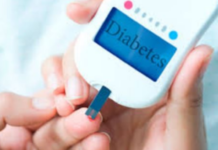New Delhi— Diabetic retinopathy is fast emerging as one of the leading causes of vision loss in India, yet often goes undiagnosed until irreversible damage has already occurred, health experts warned on Saturday, ahead of World Retina Day, observed annually on the last Sunday of September.
With India holding the dubious distinction of being the diabetes capital of the world, experts are sounding the alarm over the growing prevalence of diabetic retinopathy and the urgent need for early screening and intervention.
“Diabetes is already an epidemic in India, and diabetic retinopathy is rapidly emerging as a public health problem. It is becoming one of the leading causes of visual impairment in the country,” said Dr. Praveen Vashist, Professor and Officer In-charge, Community Ophthalmology at the RP Centre, AIIMS New Delhi.
“Yet, it remains unrecognised until vision loss has already set in,” added Dr. Vishali Gupta, Vice President of the Vitreo Retinal Society of India (VRSI) and Head of Retina at PGIMS.
Low Screening Rates, High Risk
According to the National Blindness and Visual Impairment Survey (2019) by AIIMS, approximately 12% of Indians aged 50 and above have diabetes. Of those, about 17% suffer from diabetic retinopathy. Shockingly, only 10% of people with diabetes had ever undergone a retinal screening for the condition—highlighting a major gap in preventive eye care.
“A persistently high blood sugar level damages the small blood vessels in the retina, the light-sensitive tissue at the back of the eye,” explained Dr. Gupta. “This damage can go unnoticed for years, until complications like diabetic macular edema (DME) occur—where swelling and bleeding can cause significant or even permanent vision loss.”
Treatment Advances Offer New Hope
While laser therapy and anti-VEGF injections have been the cornerstone of DME treatment, newer therapies are offering renewed hope for patients.
Notably, bispecific antibodies are being developed to target multiple disease pathways simultaneously, reducing inflammation, controlling abnormal blood vessel growth, and preserving vision with fewer interventions.
“These innovations are especially critical in a country like India, where the diabetes burden is increasing exponentially,” Dr. Gupta said. “However, no treatment can replace the impact of early detection. Delayed diagnosis often means patients seek help only when the damage is already significant and sometimes irreversible.”
Call for Nationwide Awareness and Screening
The experts emphasized the importance of making routine eye examinations an integral part of diabetes management.
“Public awareness and systematic screening for diabetic retinopathy must be urgently promoted,” Dr. Vashist stressed. “A realistic and essential target would be to reach at least 80% screening coverage among people with diabetes by 2030. This is vital to reduce avoidable blindness and ensure timely treatment for those at risk.”
As India observes World Retina Day, ophthalmologists are urging both the public and policymakers to prioritize preventive eye care, especially for those living with diabetes—a step that could safeguard the vision and quality of life for millions. (Source: IANS)














